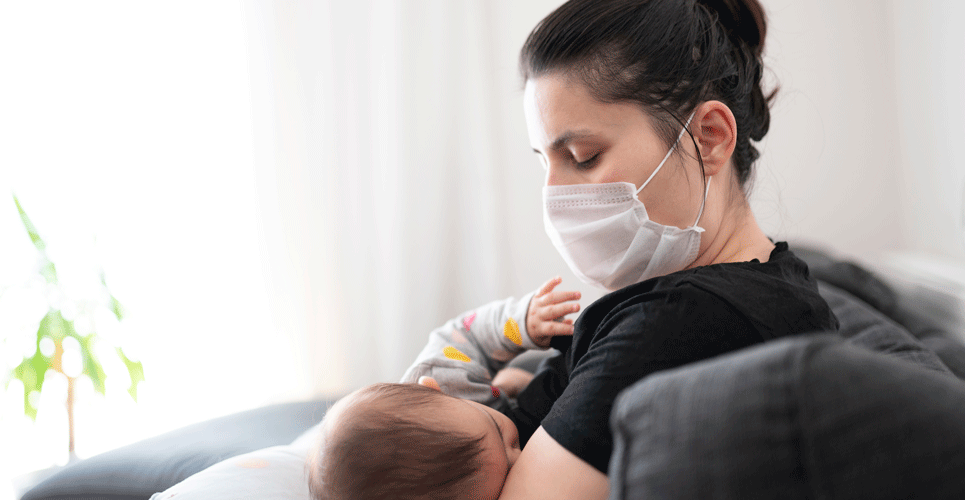Breast milk obtained from women who have been either vaccinated or previously infected with COVID-19 show a robust antibody response.
Breast milk samples obtained from women vaccinated and previously infected with COVID-19, showed neutralising activity against live virus. This was the conclusion of a study by researchers from the Division of Allergy and Immunology, University of Rochester, New York, US. Several previous studies have revealed how breast milk does not contain COVID-19 although in studies where the virus has been found, it is present at very low levels and does not represent a risk for infection. Whether human milk contains COVID-19 antibodies is uncertain because currently, there has only been one study in lactating mothers and this was against a pseudovirus rather than a live virus.
For the study, researchers recruited two groups of women aged 18 years and older: an infected and vaccinated cohort. Eligible patients for the infected group were required to have had a PCR positive test result within the previous 14 days, whereas among the vaccination group, a previous COVID-19 diagnosis was an exclusion criteria. Women in the vaccination group were required to have had two vaccinations as well as currently breast-feeding. The researchers obtained samples of breast milk from the infected cohort on days 0, 3, 7, 10, 28 and 90 whereas for the vaccinated women, samples were obtained 18 days after the first and second vaccination doses and 90 days after the second dose. All samples from both cohorts were analysed for both Ig A and Ig G as well as for COVID-19 virus.
Findings
A total of 77 women, 30 in the vaccinated cohort and 47 of whom had a prior infection. The mean age of the infection group was slightly lower than the vaccinated group (29.9 vs 33, infected vs vaccinated, p = 0.002). Samples from neither of the two groups contained COVID-19 although both cohorts demonstrated neutralising activity against COVID-19 which was slightly higher in the infected cohort.

Among the infected cohort, breast milk samples showed a robust and fast Ig A response that was stable at 90 days but a more variable Ig G response. In contrast, among the vaccinated cohort, levels of Ig A rose after the first vaccination but then decreased after the second dose and while Ig G levels were uniformly larger in response to vaccination but levels had declined by day 90.
Commenting on their results, the authors suggested that collectively, Ig A is the first antibody up-regulated in human breast milk in response to infection with COVID-19. In contrast, among vaccinated women, there is a larger Ig G response which increases after the first and second doses but which declines over time. They concluded that both Ig A and Ig G contribute towards COVID-19 neutralising capacity and that this implies a clinical benefit to infants receiving breast milk from either previously infected or vaccinated mothers.
Citation
Young BE et al. Association of Human Milk Antibody Induction, Persistence, and Neutralizing Capacity With SARS-CoV-2 Infection vs mRNA Vaccination. JAMA Pediatr 2021

